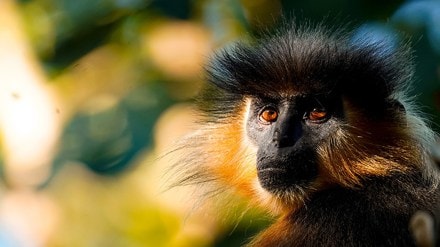Located in the Bodoland Territorial Region (BTR) of Assam, Manas National Park is an iconic wildlife and adventure tourism destination, a harmonious blend of raw wilderness, vibrant biodiversity, and rich cultural heritage.
Biodiversity Hotspot
Spanning over 950 square kilometers, Manas is celebrated for its exceptional variety of flora and fauna. It is part of the Eastern Himalayan Biodiversity Hotspot, home to 22 of India’s most threatened species. The park is famous for its iconic inhabitants, including the endangered Royal Bengal Tiger, Asiatic Elephant, and the elusive Clouded Leopard. It is also the only park in India with a significant population of the rare Pygmy Hog and Golden Langur. Manas doubles as a tiger and elephant reserve and is a birdwatcher’s paradise. Over 450 bird species, such as the Bengal Florican, Great Hornbill, and Pied Harrier, make the park a vibrant tapestry of avian life.
Scenic Splendor
The landscape of Manas is as mesmerizing as its wildlife. The park is named after the Manas River, which flows through it, forming picturesque gorges and sandbanks. The verdant expanse is dotted with lush grasslands, tropical forests, and tea estates on its periphery, creating a perfect setting for photographers and nature lovers.
Adventure in the Wild
Manas offers thrilling opportunities for wildlife enthusiasts and adventurers:
- Jeep Safaris: Explore the rugged terrains and spot wild inhabitants in their natural habitat.
- River Rafting on Manas River: A unique way to experience the park’s beauty while enjoying a gentle adventure.
- Nature Walks and Birdwatching: Discover the park’s rich ecosystem on foot or with binoculars in hand.
Cultural Connection
A visit to Manas is incomplete without experiencing the vibrant Bodo culture. The Bodo community, one of Assam’s largest indigenous groups, plays a crucial role in conserving the park. Their traditional music, dance, and cuisine offer a glimpse into their harmonious coexistence with nature.
When to Visit
The best time to visit Manas National Park is between November and April when the weather is pleasant and wildlife sightings are more frequent. The park remains closed during the monsoon (June to September) due to heavy rainfall.
Getting There
Manas is well-connected by road and rail:
- By Air: The nearest airport is Lokpriya Gopinath Bordoloi International Airport, Guwahati (136 km).
- By Rail: Barpeta Road Railway Station (32 km) is the nearest railhead.
- By Road: Regular buses and taxis ply from Guwahati and nearby towns.
Sustainable Tourism
Efforts are being made to promote eco-tourism in Manas, ensuring that tourism benefits local communities while preserving its fragile ecosystem. Visitors are encouraged to respect wildlife, follow park guidelines, and support local initiatives.
Manas National Park is not just a wildlife sanctuary but a testament to the beauty and resilience of nature and culture. Whether you are an avid wildlife enthusiast, an adventure seeker, or a cultural explorer, Manas promises an unforgettable journey into the heart of Bodoland’s wilderness.
Disclaimer:
This article contains sponsored content that may not reflect the independent opinion or views of FinancialExpress.com. Further, FinancialExpress.com cannot be held responsible for the accuracy of any information presented here. Please consult a certified financial advisor before making any decisions based on this article.
